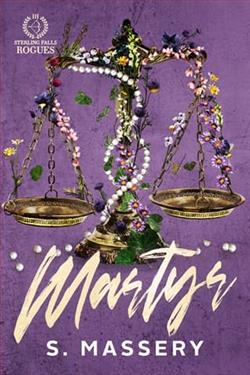Page 90 of The Rom-Commers
I lifted my eyebrows, likeHow ’bout that?Like by breaking the pattern, I’d fixed him.
But then Charlie said, “Only because you can’t get out.”
“You don’t know that.”
I gave Charlie a minute to process. This had been a very productive near-death experience so far.
Then, to keep the distractions going, I said, “I don’t have a mom, either.”
Charlie met my eyes. “She left you?”
“She died,” I said. “In the same camping accident that injured my dad.”
“Oh,” Charlie said then, his voice low and soft like a hum. “I’m sorry.”
“You know what?” I said. “It’s okay. I’m okay. I remember my dad saying, over and over in the years after she died, ‘We’re going to be okay. We know how to do this.’ And he wasn’t wrong.”
“How to… grieve?”
“How to let go.”
“That’s not easy.”
“No. And it takes a long time. My dad kept promising that grieving was a natural process—part of being human—and that we’d be okay in the end. I didn’t believe him at first. But he was right. It’s okay now. It doesn’t make me sad to remember her now. I miss her, but in a way that doesn’t hurt. You do get there, eventually.”
“Your dad sounds very wise.”
I nodded—just barely. “I won the dad lottery, for sure.” Then I added something that I’d never said out loud before—something that was so scary to verbalize that it made my feelings about the situationwe were currently in—teetering above a vast valley below us, held only by a ribbon of guardrail metal—seem almost cute. “The camping trip was my choice,” I confessed to Charlie then. “Everybody else, my mom included, voted to go to the beach.”
Nineteen
IT FELT LIKEten hours before the first fire engine got there—but it was only ten minutes.
Nothing like perching above your imminent death to bend the space-time continuum.
Once the firefighters arrived, they talked to us through our open windows, explaining that they were going to stabilize the Blazer by running cables around the axle at each back wheel and winching it to the engine. Once it was stable, they promised, they’d get us harnessed and help us climb out.
All in all, once the professionals took over—things got pretty easy. We didn’t have to make any decisions after that. We just had to follow instructions.
Which we did. Gratefully.
Minutes later, we were out of the car, safe and sound.
The Blazer was pretty unscathed, considering—but a wrecker still hauled it off to a body shop to get checked out. The cops gave us a ride back to their station, where we could call a ride to pick us up.
Once we were officially not dead, I felt a gale-force euphoria that had me thanking everyone, and shaking hands, and giving hugs.
It happened. We lived. And now we had a story to tell.
But Charlie didn’t bounce back so fast.
He’d been so personable in the car trying to keep me calm. But once we were rescued, he got all quiet and frowny and didn’t want to talk. He stayed like that all afternoon, and after we got home, and all during dinner.
He kept coughing after that, too—like it was his new thing.
Which felt a bit stubborn.
All I wanted was to feel better—and all Charlie wanted, apparently, was to feel worse.















